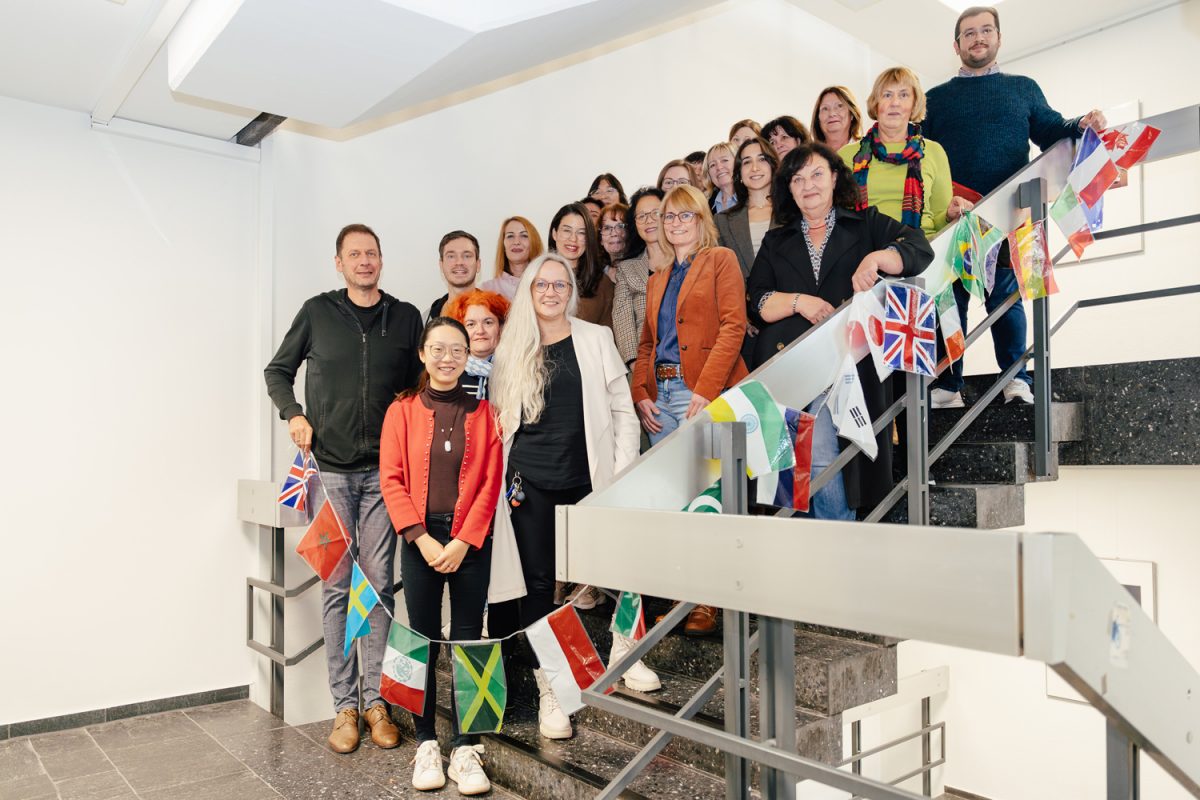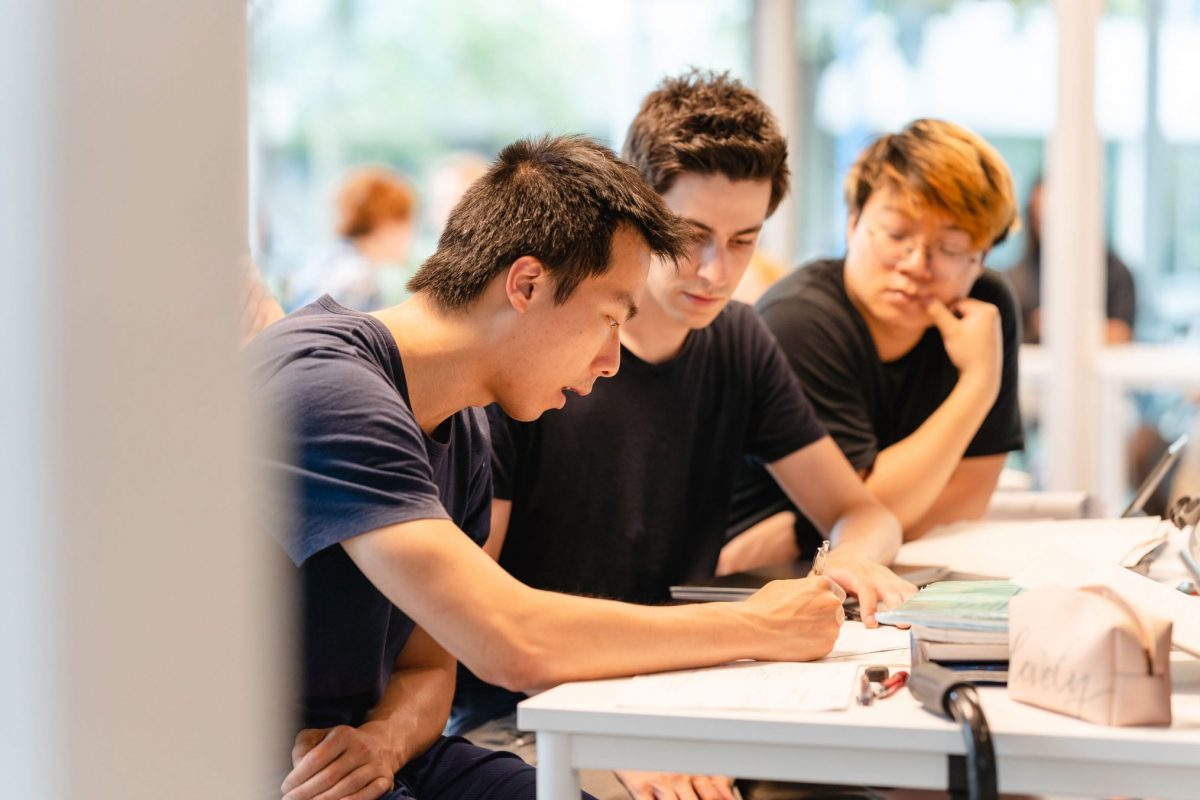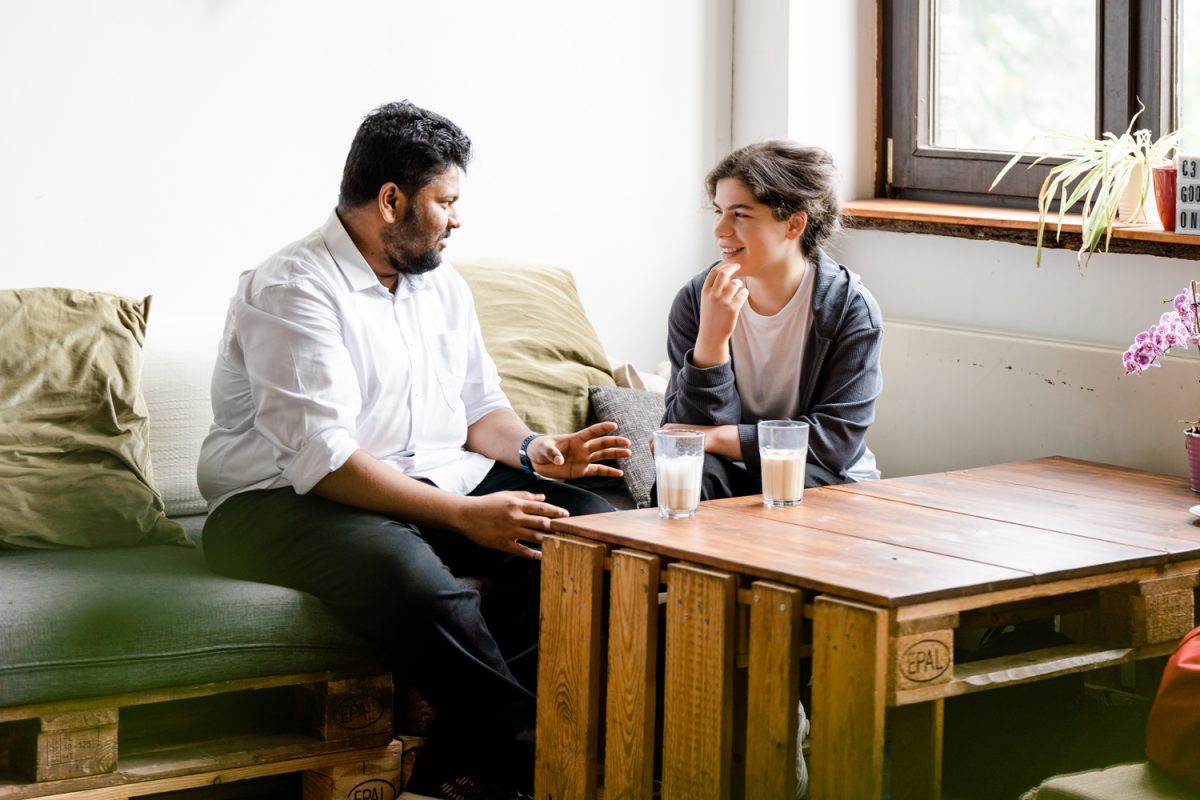The Language Centre celebrates its 50th anniversary "Multilingualism is a huge benefit"
The Language Centre of TU Braunschweig is celebrating a very special anniversary this year: 50 years ago, a coordinated language course programme was offered at TU Braunschweig for the first time. Celebrations will take place with an anniversary event on 26 April 2024.
12 languages, intercultural workshops, tandem programmes, language certificates, language learning programmes for international students and more – the Language Centre offers a wide range of courses and makes a significant contribution to internationalisation and intercultural exchange at TU Braunschweig. Its beginnings can be traced back to the Collegium Carolinum, which was founded in 1745 and offered foreign language classes already in its early stages. However, a lot has changed since then: “Language learning is becoming more diverse,” says Professor Andreas Hettiger, head of the Language Centre of TU Braunschweig since 2011. “In recent years, for example, more and more electronic media, language learning apps and AI-based translation software have emerged. Nowadays many people use them to learn a foreign language. This also changes the way language centres operate.”

Professor Andreas Hettiger (left) and the staff of the Language Centre are looking forward to the celebrations in spring 2024. Photo: Daniel Götjen/TU Braunschweig.
In 1972, nobody was even thinking about language learning with mobile apps. Instead, in the winter semester of 1972/73, TU Braunschweig started to implement the plan to establish a central language laboratory, that had been approved on 5 July 1972. The first language laboratory was located at the former Faculty of Humanities and Social Sciences under the direction of Wolfgang Mackiewicz. After he left, Dr Peter Nübold took over the management of the facility in January 1973 and was responsible for its development. He remained head of today’s Language Centre until 2009, and Dr Ortrun Hanna headed the Language Centre until February 2011.
Over the years, the range of courses offered by the Language Centre has been gradually expanded. The first summer course for German Language and Culture for students from the USA was offered back in 1981 – four participants attended the course in Braunschweig and the predecessor of today’s TU Braunschweig Summer School had been created. In 1991, the language laboratory was renamed to its current name “Language Centre”. “The Language Centre is a place of diversity – linguistically and interculturally,” emphasises Professor Tatjana Schneider, ice President for Internationalisation and Regional Relations. “With its offers, the Language Centre contributes to the internationalisation of all members at TU Braunschweig.”
Programme for German as a foreign language expanded
In addition to the twelve foreign languages that are taught at the Language Centre today, the field of German as a foreign language has also played a major role since the 1990s. Since then, the semester German courses have been available for enrolled international students who want to improve their German language skills while studying. In 1995, preparatory German courses wer added, which enable prospective international students to take the required German examination for admission to university within 14 months.
The topic of better integrating international students has become increasingly important in recent years. Language learning is therefore no longer the only focus at the Language Centre, but is being combined with other integration offers.

In the S.o.S. programme, international and German-speaking students study together for their courses. Photo: Simone Fürst/TU Braunschweig
For example, the programme “Studying without language barriers” was launched in the 2014/2015 winter semester on the initiative of Professor Meinhard Schilling and is now a successful peer learning programme. It is offered by the Language Centre in cooperation with the the Institute for Electrical Measurement Science and Fundamental Electrical Engineering and the Institute for Particle Technology. In the programme, international students can train course content together with German-speaking students and make intercultural contacts at the same time. Offers such as the Tandem Programme and the Intercultural Partner Project also encourage greater exchange between German-speaking and international students.
Strategic changes in 2018
With the establishment of the International House in 2018, to which the Language Centre has belonged since then, its strategy was realigned. The aim was to sharpen and strategically align the language programme. In addition, new synergies have been created by merging all international institutions in the International House. By working under one roof, the Language Centre, the Incoming Office, the Mobility Office and the International Student Support have developed even more specific offers for international and local students. For example, the Language Centre actively introduces its offers during the Welcome Week for international students. Moreover, new workshops and exchange formats are now offered in the area of Chinese language skills.

If you want to learn a foreign language, there are many different options at the Language Centre: In addition to language courses, for example the Tandem programme is also very popular. Photo: Simone Fürst/TU Braunschweig
There has also been a stronger focus on English as a scientific and technical language. The course programme has been expanded to include a number of technical language courses. “English is definitely the most important foreign language for students at a technical university,” emphasises Hettiger. “Nevertheless, it makes sense to learn another foreign language. We can see that other languages are also very popular, such as Japanese for example.” Alongside English, German as a foreign language and Spanish are among the most popular courses at the Language Centre. Around 160 courses are offered each semester. They are open to students, staff and external participants. The courses are free of charge for students. “Multilingualism is a huge benefit in today’s world,” Hettiger is convinced. “Be it for the international job market or as preparation for a stay abroad – I recommend that all students take the opportunity to learn a foreign language.” It’s not just about memorising vocabulary or understanding the grammar of another language. For Hettiger, language learning involves much more: “You broaden your own horizons by learning a foreign language. It can change the way you think and strengthen your intercultural skills.”
For the future of the Language Centre, Hettiger hopes that the broad offer of languages can be maintained and that the institution will further contribute to enhancing the international atmosphere on campus. “Learning foreign languages also demonstrates a welcoming culture,” he emphasises. “People from 24 different countries work at the Language Centre, and the working language here is by no means always German. What is already a lively culture in our institution, is something I would like to see for the entire campus.”
